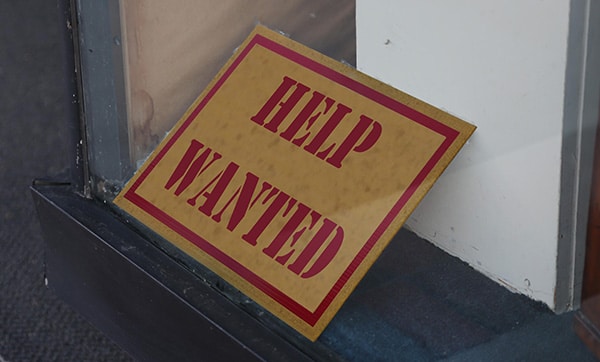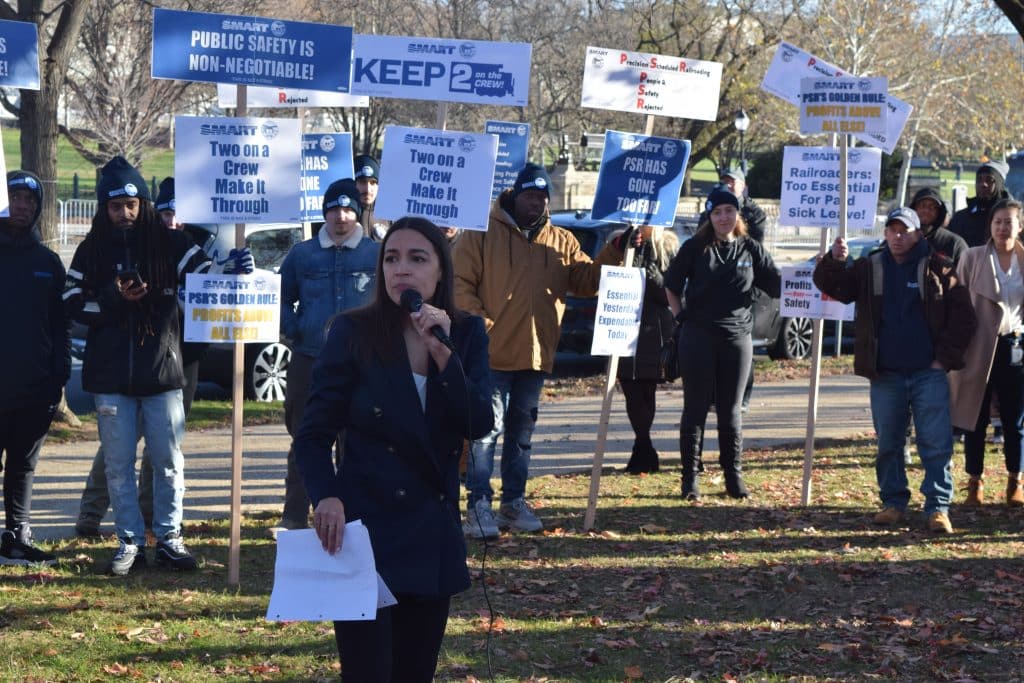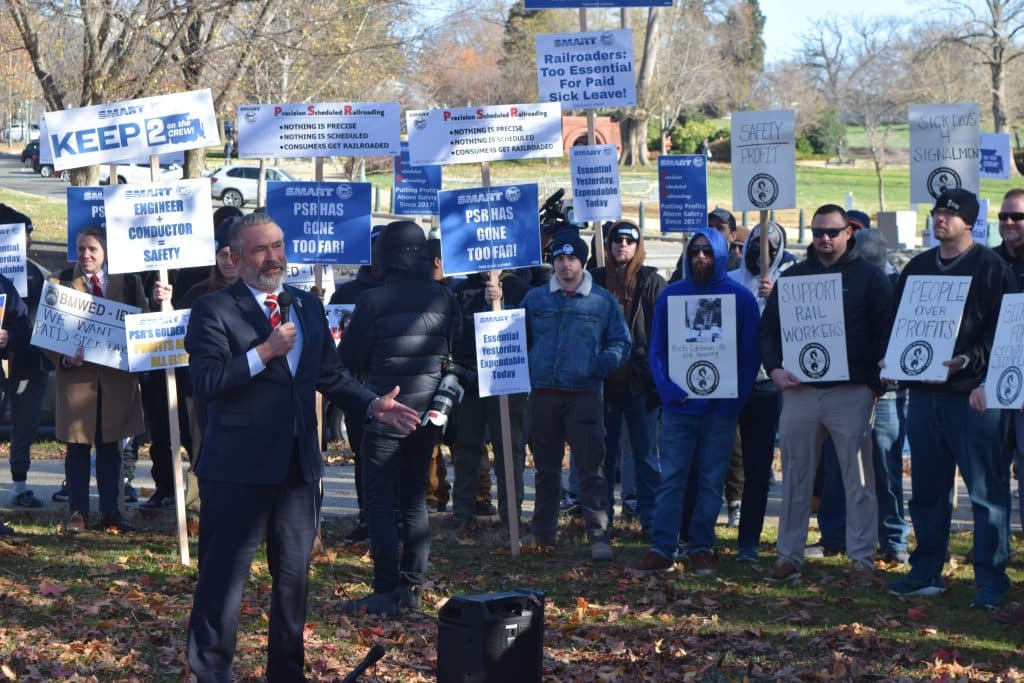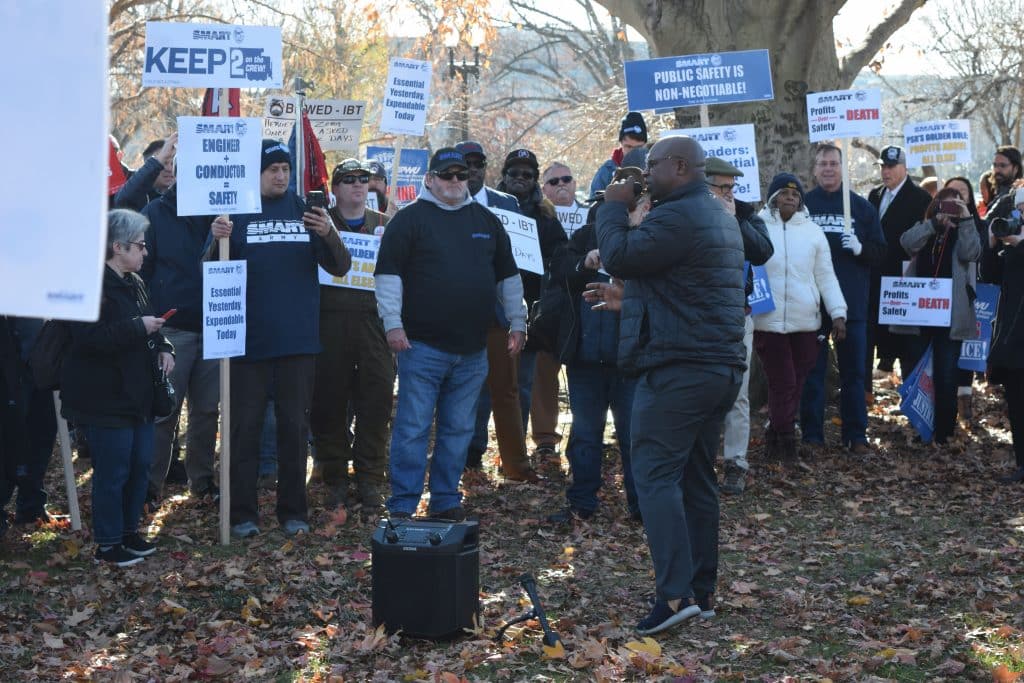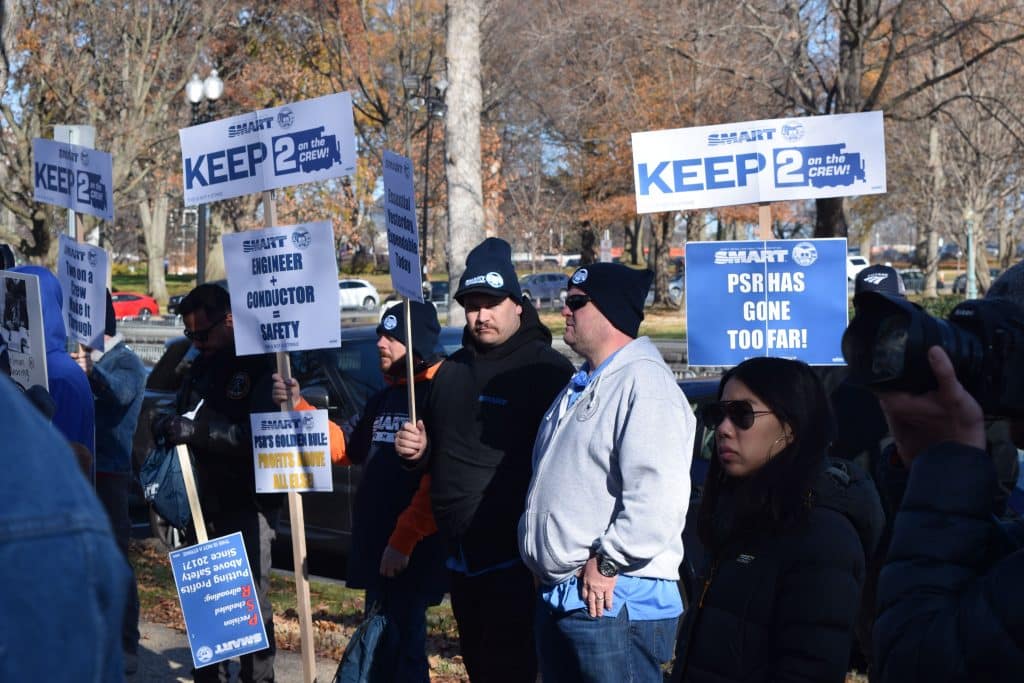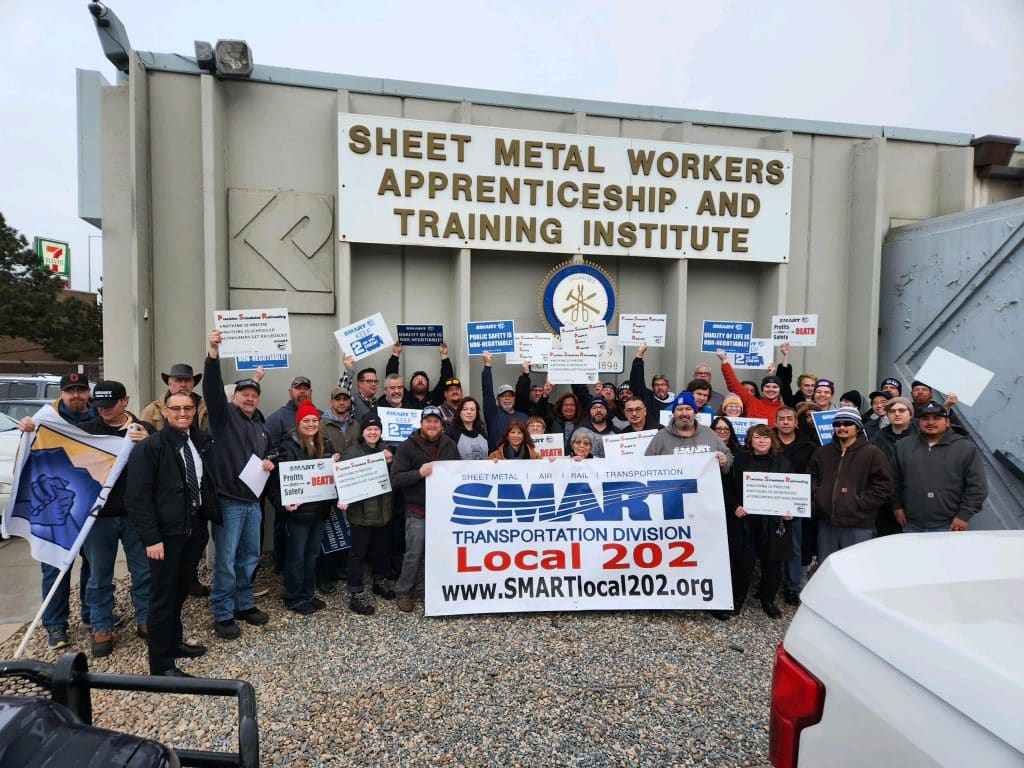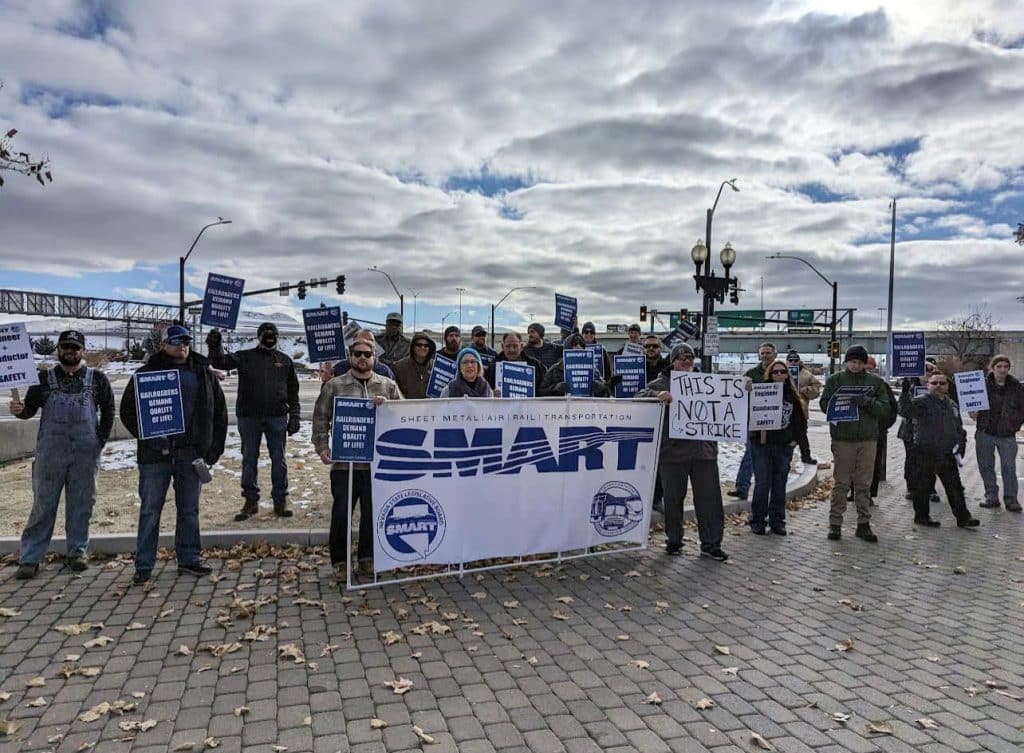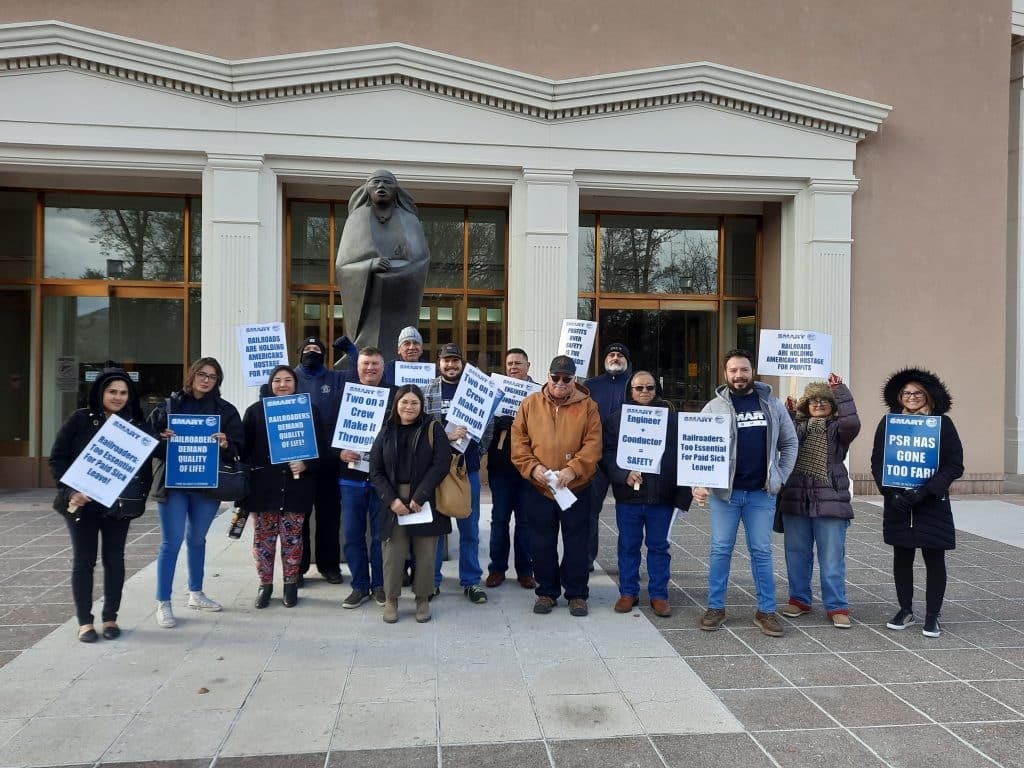In the aftermath of February’s rail disaster in East Palestine, Ohio, the U.S. Senate Commerce Committee held a key hearing on March 22 on “Improving Rail Safety in Response to the East Palestine Derailment” to get to the bottom of what went wrong in the accident and to discuss the bipartisan Railway Safety Act of 2023.
The committee had an all-star cast of witnesses who testified, including two U.S. senators; Ohio Gov. Mike DeWine; East Palestine resident Misti Allison, who represented the community; National Transportation Safety Board Chair Jennifer Homendy; David Comstock, chief of the Ohio Western Reserve Joint Fire District; Norfolk Southern CEO Alan Shaw; Association of American Railroads (AAR) CEO Ian Jeffries and SMARTTD’s Ohio State Legislative Director (SLD) Clyde Whitaker. To begin the hearing, U.S. Sens. Sherrod Brown and JD Vance kicked off the day explaining in detail the bill, S.B. 567, they’re putting forward.
Brown began his comments by thanking the witnesses for testifying and referred directly to SLD Whitaker, calling him “an unrelenting advocate for safe working conditions for his members and all people working in Ohio railroads.”
Brown then went on to discuss why this legislation is so necessary.
“Norfolk Southern followed the Wall Street business model,” he said. “Boost profits and stock price by eliminating, over the last decade, 38% of its workforce.”
He went on to describe Precision Scheduled Railroading (PSR) perfectly, saying, “They cut cost to boost profits. The communities along their route be damned!”
Vance followed Brown, explaining that the intention of the bill is not to put the government in charge of day-to-day operations of America’s railroad companies (like the bill’s outspoken opponents would like the public to believe). He addressed the concern of the rail carriers who have made it known that they feel the legislation is an overreach by Congress, stating plainly: “You cannot on the one hand beg the government to bail you out of a labor dispute three months ago and then say that it’s ‘big government’ to have proper safety standards in the way that you conduct your railroads. It’s a ridiculous argument, and it doesn’t pass the smell test.”
Gov. DeWine followed the Buckeye State’s senators and weighed in heavily on behalf of the residents of East Palestine. He started by describing life as it was in the village of 4,700 leading up to events of Feb. 3, 2023. He walked the committee through the Norman Rockwellian Friday night where the community was keenly focused on the high school basketball game in progress until the unthinkable happened.
“Life stopped being normal for everyone in this community — it stopped feeling safe — when 38 cars of that Norfolk Southern freight train, carrying hundreds of thousands of pounds of hazardous materials, hurtled off the track. In an instant, life turned upside down,” he said.
DeWine went on to describe the tough questions facing residents of East Palestine revolving around their physical health as well as the viability of their community’s future. These points were driven home by witness Misti Allison. Allison, a resident of East Palestine for the last four years, was testifying in front of the Senate committee on behalf of her community. In her own words, her goal was “to put a face on this chemical disaster.”
In addition to emphasizing DeWine’s points in reference to the health concerns swirling around in East Palestine, she shared other details about a community shattered. Among the issues she brought to the committee’s attention were home equity of the residents, the viability of local businesses and the concerning contradictions in the results of various sources of environmental testing of air, water and soil samples.
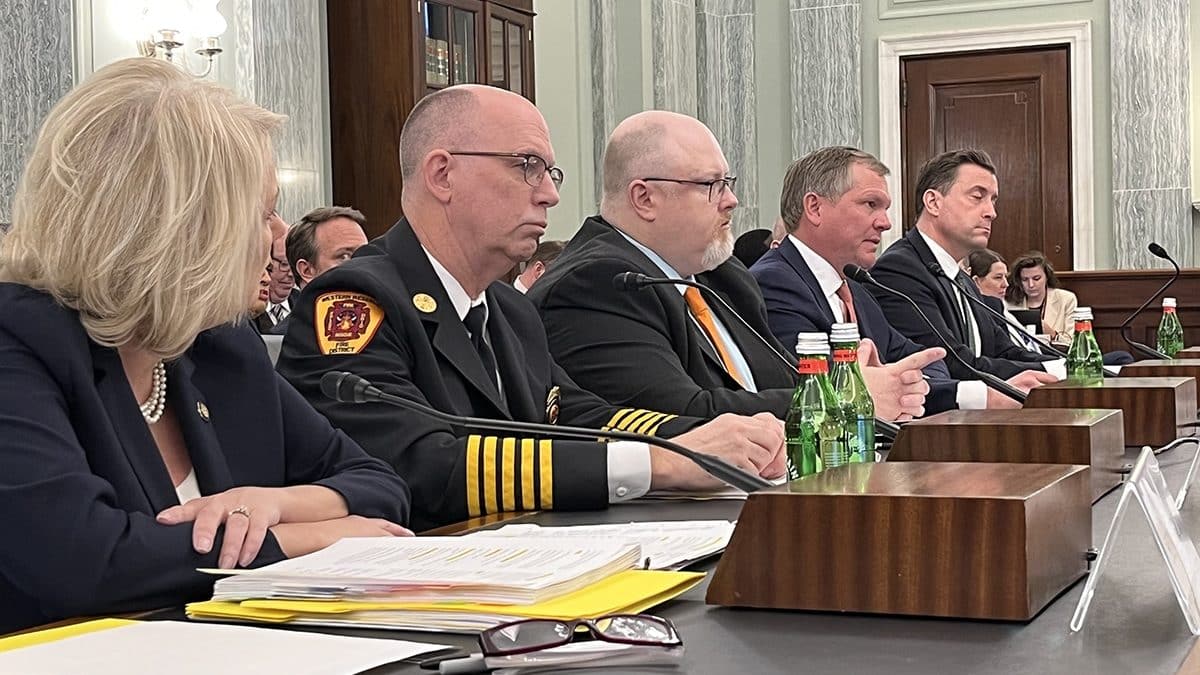
The most telling and unique issue she brought to light was the still-developing mental and emotional health concerns of the community post-derailment. She pointed out the ramifications the derailment has had, especially among the youth of East Palestine, in her written testimony: “Kids are not allowed to play on the playground because it hasn’t been cleaned. So the kids now play a game they invented called ‘EVACUATION’ during recess. This train derailment has robbed our kids of their childhood, and perhaps more,” she said.
This imagery is powerful and takes the importance of the Railway Safety Act of 2023 out of the realm of financial ramifications and puts it squarely in the arena of human rights.
At the conclusion of Allison’s testimony, Brother Whitaker took the stage to speak our union’s truth directly to power. SLD Whitaker explained in detail the effects PSR has had on our industry from the ground level.
In July 2022, Whitaker filed a complaint with the Federal Railroad Administration (FRA) directly reporting that Norfolk Southern had been ordering their crews to disregard warnings from wayside defect detectors in his state and to keep their trains rolling after receiving alerts of hot bearings.
He informed the senators that he had personally cautioned the FRA months prior to the East Palestine derailment that carriers’ business practice and adherence to the PSR doctrine was putting our crews and communities in harm’s way.
“PSR has made the Class I railroads more than $160 billion in profit since 2015 while at the same time causing the greatest degradation of safety in modern-day railroading,” he said in his written testimony. “As we have all seen in East Palestine, this cut-your-way-to-profit model is not sustainable and it is very, very dangerous.”
He further emphasized the impact of PSR on safety by talking about the current state of safety inspections of rolling stock and maintenance of equipment.
“No longer is identifying defects the goal of inspections. Instead, the goal is to minimize the time it takes to perform them or the elimination of them altogether, so the trains keep moving,” he said. “Compound this with the fact that the railroads are on a determined course to grow these trains to astronomical lengths and you have a predictable outcome, and that outcome is East Palestine.”

